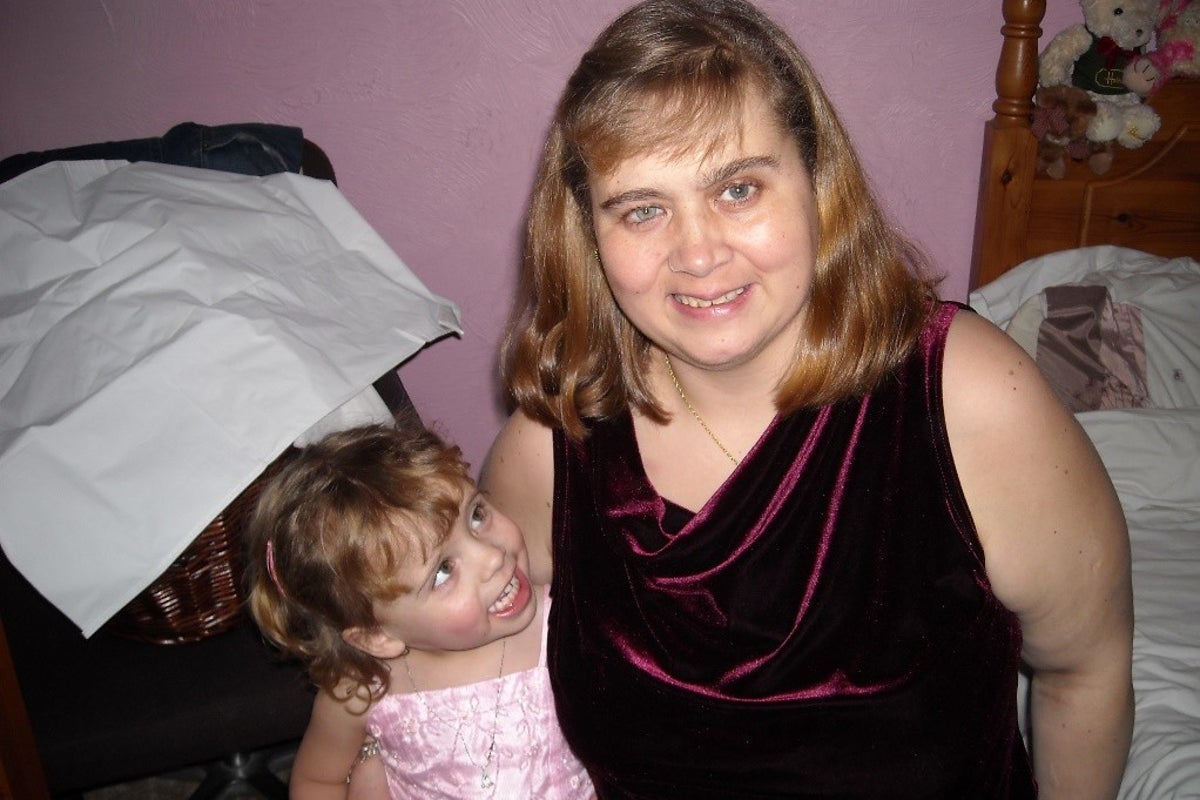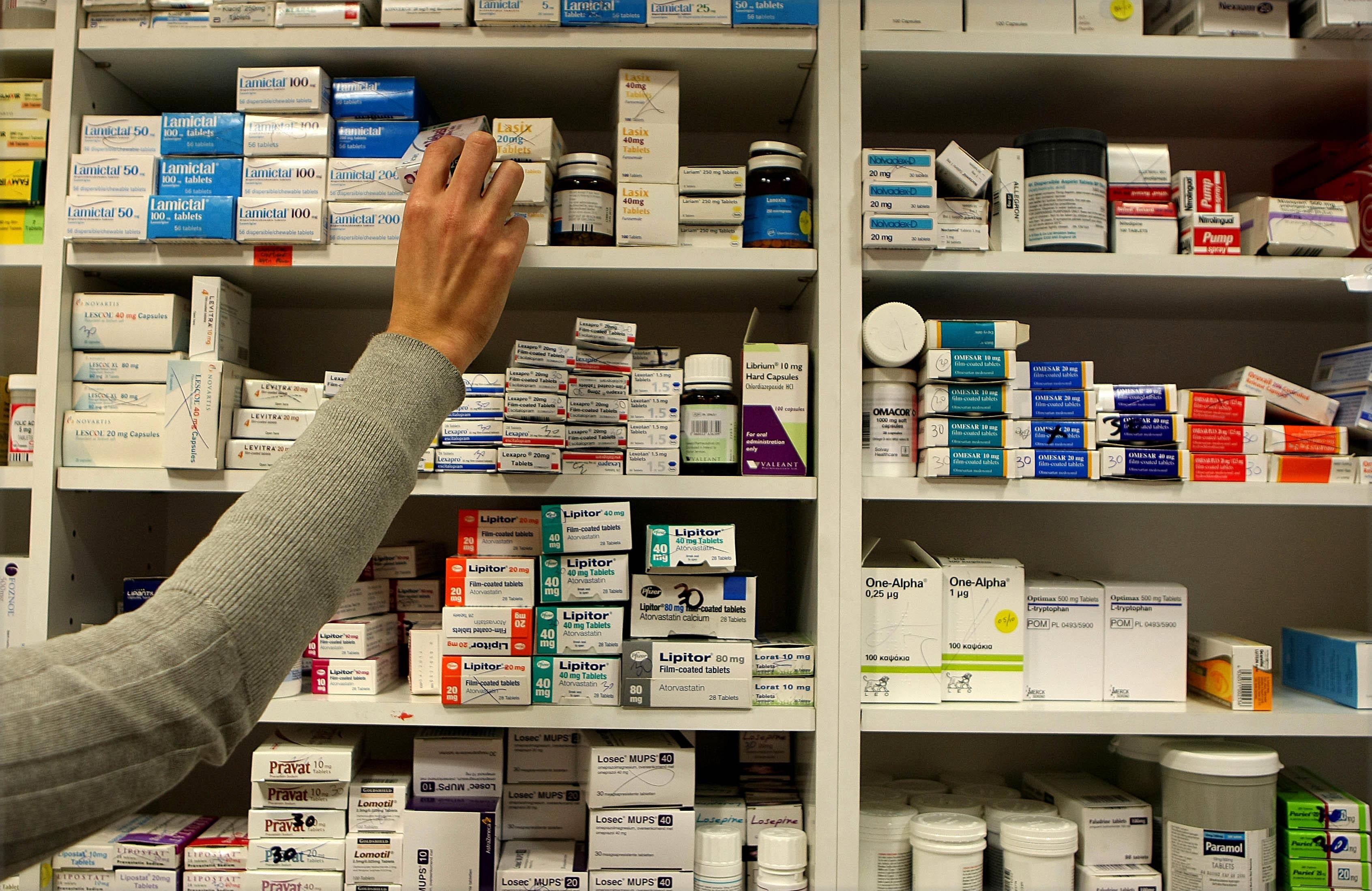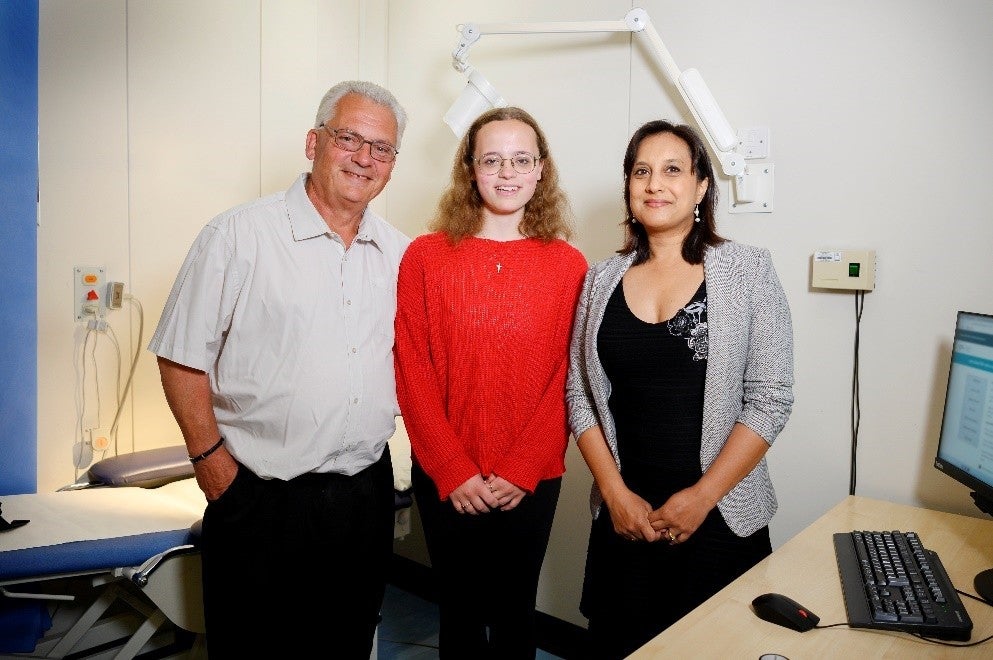
A teenager who lost four family members to a rare genetic condition has become the first person in Europe to receive a “life-changing” drug after it was approved for use on the NHS.
Mary Catchpole, 19, also has activated PI3-Kinase delta syndrome (APDS), a rare inherited disorder that leaves people with a significantly weakened immune system.
Patients with APDS are vulnerable to recurrent infections, often facing a lifetime of antibiotics and invasive medical procedures in an attempt to manage their health.
Miss Catchpole’s mother’s side of the family has been badly affected by APDS – her mother Sarah died aged 43 in 2018, her aunt Helen died aged 12, her uncle Edward when he was 39 and her grandmother Mary when she was 48.
Now, thanks to researchers in Cambridge who identified APDS, Miss Catchpole has received a new drug to treat it at Addenbrooke’s Hospital in Cambridge.

The medicine, called leniolisib (Joenja), is the first ever targeted treatment for APDS and is a simple tablet taken twice a day.
Miss Catchpole is a teaching assistant who lives in Great Yarmouth with her father, Jimmy, 64, and brother Joe, 20, who does not have the condition.
“I was diagnosed with APDS aged seven, and it’s had a big effect on my life. I had lots of cannulas when I was younger and lots of hospital trips,” she said.
“I had a permanent line in the side of my body when I was younger, which they put medicine in regularly at the hospital.
“I wasn’t allowed to do very much physical activity, so I had to sit out a lot in PE at school.
“I used to be called an attention-seeker because obviously it was hidden, so no one really believed me.
“It also stopped me from doing a lot of my dancing, which I’ve always loved to do. So it has been hard.”
Miss Catchpole said taking the new drug is “life-changing” as it means she can leave behind huge amounts of medication.
“I feel really blessed because it’s so simple to do and it doesn’t take up very much time, whereas for the medication, it just takes such a long time to do. So it’s really a blessing, but it’s also obviously bittersweet because my late family members never got the chance to have it.”
APDS was identified by Cambridge researchers in 2013, with Miss Catchpole’s family playing a key role in its discovery.
Her mother and uncle were Addenbrooke’s patients and were offered DNA sequencing to see if there was a genetic cause for their immunodeficiency.
Researchers identified a change in their genes that increased activity of an enzyme called PI3-Kinase delta, meaning this enzyme is effectively “switched on” all the time. This prevents immune cells from fighting infection and leads to an abnormal immune function.
The new drug works by inhibiting the enzyme, effectively normalising the immune system.

Now, Miss Catchpole says she can look to the future with optimism and is excited to lead a normal life.
“I really want to become a dance teacher,” she said. “I absolutely love my current job as a teaching assistant, but I’d also like to go on some adventures as well.
“I’ve always felt different, so it will be nice to feel like I belong.
“When I had sleepovers when I was younger and had to take all my medication with me, I didn’t feel like a normal child.
“To be able to feel normal going about my day-to-day life is going to be really nice.”
Until now, the only treatments for APDS patients were antibiotics for infections, immunoglobulin replacement therapy to prevent infections and organ damage, and a bone marrow or stem cell transplant.
Dr Anita Chandra, consultant immunologist at Addenbrooke’s and affiliated assistant professor at the University of Cambridge, said going from “the discovery of a new disease in Cambridge to a treatment being approved and offered on the NHS within the space of 12 years” is “incredible”.
“This new drug will make a huge difference to people living with APDS.”

Professor Sergey Nejentsev, from the University of Cambridge, who led the research that discovered APDS, said: “As soon as we understood the cause of APDS, we immediately realised that certain drugs could be used to inhibit the enzyme that is activated in these patients.
“Leniolisib does precisely that. I am delighted that we finally have a treatment which will change the lives of APDS patients.”
Professor James Palmer, NHS England’s medical director for specialised commissioning, said: “We’re delighted to see Mary become the first patient in Europe to receive this first-ever targeted and approved therapy for a rare condition identified just over a decade ago – in Cambridge, no less.
“This treatment could be life-changing for those affected by this debilitating genetic disorder, and this important step forward is another example of the NHS’s commitment to offering access to innovative medicines for those living with rare conditions.”
Experts believe the drug will work long-term in patients as long as they keep taking the tablets.
Researchers are now looking at the potential for leniolisib to work on other, more common immune conditions.
Patients eligible for leniolisib can be referred to Addenbrooke’s for specialist review and care.
Between 40 to 50 people in England are known to have APDS.
The list price for leniolisib is £352,000 per person per year, but the company Pharming has agreed a discount for the NHS.
The team that discovered APDS included researchers from the University of Cambridge, Babraham Institute, Medical Research Council (MRC) Laboratory for Molecular Biology, and Addenbrooke’s, with funding from Wellcome and the National Institute for Health and Care Research (NIHR).







